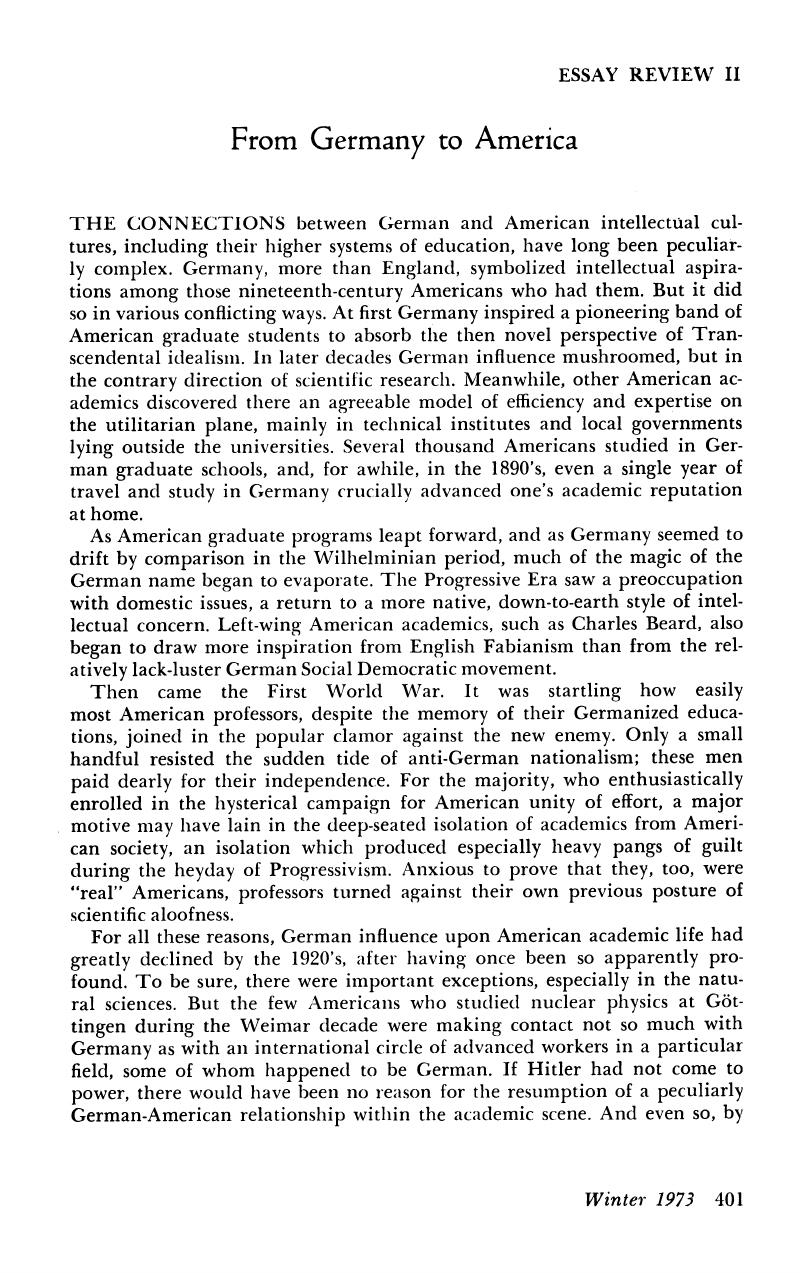Article contents
From Germany to America
Published online by Cambridge University Press: 24 February 2017
Abstract

- Type
- Essay Review II
- Information
- Copyright
- Copyright © 1973 by New York University
References
Notes
1. Fleming, Donald and Bailyn, Bernard, eds., “The Intellectual Migration: Europe and America, 1930–1960,” Perspectives in American History (Cambridge, Mass.: Charles Warren Center for Studies in American History), II (1968): 3–675.Google Scholar
2. Boyers, Robert and Pachter, Henry, eds., “The Legacy of the German Refugee Intellectuals,” Salmagundi: A Quarterly of the Humanities and Social Sciences (Saratoga Springs, N.Y.: Skidmore College), No. 10–11 (1969–1970): 3–325.Google Scholar
3. A third anthology, edited by Kosa, John, The Home of the Learned Man: A Symposium on the Immigrant Scholar in America (New Haven, 1968), deals with exiles from communism and voluntary postwar academic immigrants from Britain as well as with German refugees. It too is uneven. A few essays again capture refugee dilemmas with great sharpness, and some of them describe with unusual vividness the shock of adjustment to the very different American academic world.Google Scholar
4. Ringer, Fritz K., The Decline of the German Mandarins: The German Academic Community, 1890–1933 (Cambridge, Mass., 1969).Google Scholar
5. Lilge, Frederic, The Abuse of Learning: The Failure of the German University (New York, 1948).Google Scholar
6. Deak, Istvan, Weimar Germany's Left-Wing Intellectuals: A Political History of the Weltbühne and Its Circle (Berkeley, 1968).Google Scholar
7. Gay, Peter, Weimar Culture: The Outsider as Insider (New York, 1968).Google Scholar
8. See Veysey, Laurence, The Emergence of the American University (Chicago, 1965), pp. 125–33, 302–17, 346–56.Google Scholar
- 1
- Cited by




